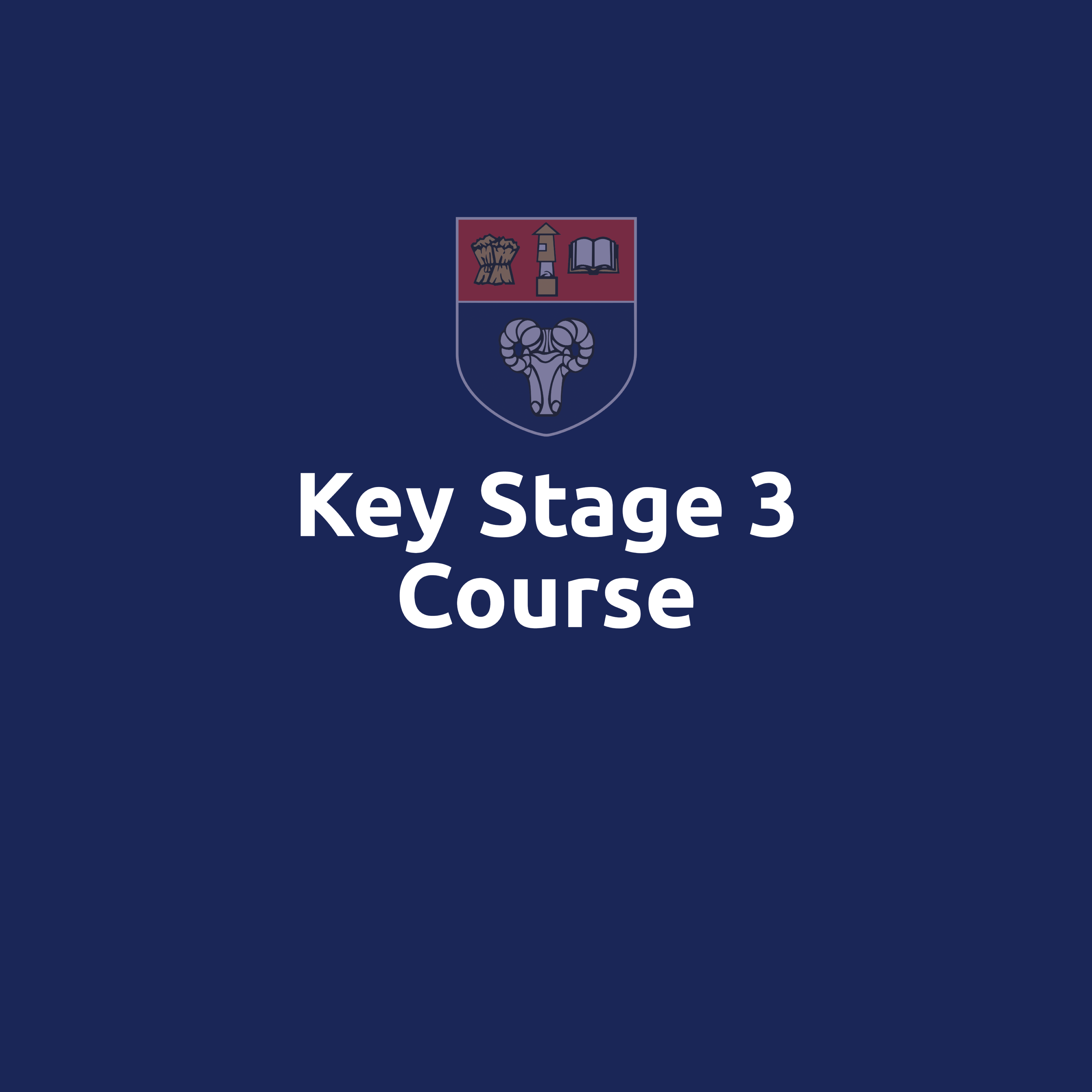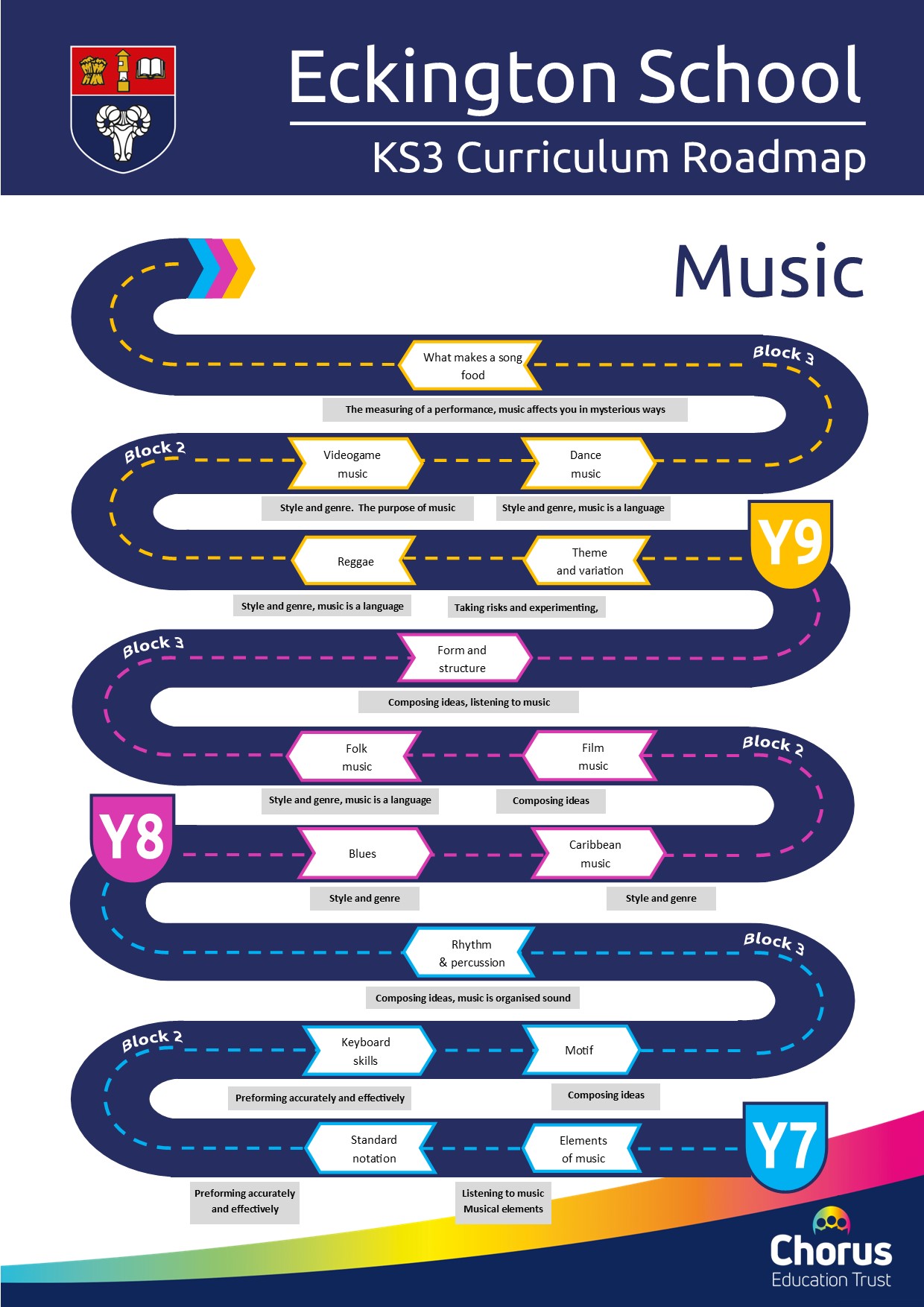Courses
We offer a broad and balanced curriculum, for key stage 3 (Years 7-9), key stage 4 (Years 10 and 11) and key stage 5 (Years 12 and 13 - Sixth Form). Click the appropriate button below to find the details for each subject offered in each key stage.

Overview
Music
Introduction
In music, we aim to provide an ambitious curriculum that explores and develops the skills that are required to enable students to become talented musicians who are passionate about music both as a subject and as a means of personal development.
We expose students to different styles, genres, and cultures of music in both the past and present, helping to improve students' cultural capital and encourage an understanding of oneself and the world around them.
We want to provide a curriculum which is inclusive and fosters independence, resilience and creativity, and promotes imaginative risk-taking which will aid students' performances and compositions using musical language when appraising their own and others' music.
We hope to engage, inspire and challenge students, equipping them with the knowledge and skills to become talented performers and composers who have skills in a variety of disciplines and the opportunities to perform to live audiences and experience musical performances first hand.
Course leader
H Partridge
Curriculum
Curriculum Roadmap
Music development plan
Schools are asked to publish a music development plan that captures their curricular and co-curricular offer and sets out how it will be staffed and funded. The Eckington School music development plan is available below:
Skills and requirements
Key concepts
Composing music
- Musical elements: knowing the key elements that are associated with explaining musical ideas.
- Composing ideas: being able to articulate musical ideas through performance and notating. Being able to express the artistic intent within a piece of music.
- Taking risks and experimenting mistakes.
Performing music
- Performing accurately and effectively: being able to apply knowledge of an instrument to create the intended sound.
- Style and genre: being able to apply knowledge of different styles and genres to create a stylised performance.
- The meaning of a performance: communicating the performer's intentions and deeper meaning of the performance.
Knowing and understanding music
- Aesthetics/value: what is music?
- Listening to music: identify, appraise, analyse music from a range of different genres and styles.
- Pitch and rhythm: music is organised sound.
- The purposes of music are not always musical: music can be used for enjoyment and entertainment but can also be used for power and manipulation.
- Music can be personal but is designed for sharing: music shared & social, communicative, expressive, and oriented toward others
- Music is a language: to understand music you must learn how it is put together. It has its own vocabulary.
- Music affects you in mysterious ways: We feel the effects of music before we have time to explain them to ourselves. Music directly affects the central nervous system. It is the most 'abstract' of the arts.
Progress expectations
Click these links to download the prior attainment related expectations by year group:




